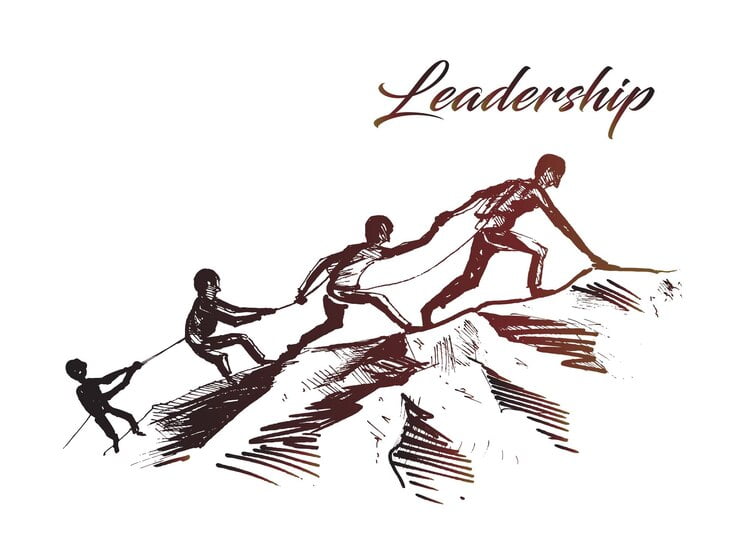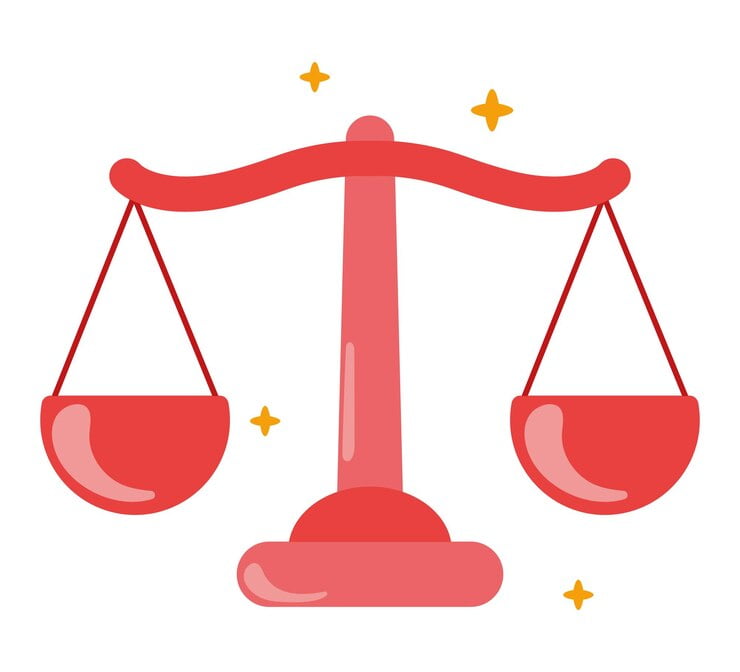Money is a valuable tool if used effectively. It can help achieve personal and financial goals.
Utilizing money wisely can open doors to opportunities and provide a sense of security. Whether it’s investing in education, starting a business, or saving for the future, having financial resources can empower individuals to create a better life for themselves and their loved ones.
Understanding the value of money and using it to make strategic decisions can lead to long-term success and fulfillment. However, it’s important to approach money management with responsibility and consideration for both short-term and long-term implications. By harnessing the power of money, individuals can make meaningful contributions to their lives and the world around them.
Table of Contents
ToggleUnderstanding Financial Power
Unlock the power of money by mastering its strategic use. Learn how to utilize financial resources effectively for ultimate success. Understanding financial power is key to achieving your goals and maximizing your potential.

Understanding Financial Power Financial power can transform lives, allowing individuals to fulfill their dreams and ambitions. Money is the key that unlocks countless opportunities and bridges the gap between aspirations and reality. By understanding the concept of financial power and how it works, individuals can harness its potential to achieve their goals and live a fulfilling life.
The Role of Money
Money plays a crucial role in our society, serving as a medium of exchange for goods and services. It empowers individuals to meet their basic needs such as food, shelter, and healthcare, while also providing avenues for personal and professional growth. With money, individuals can invest in education, acquire assets, start businesses, and secure a comfortable lifestyle for themselves and their loved ones. Moreover, money possesses a transformative power that extends beyond basic needs. It can turn dreams into reality, enabling individuals to pursue their passions and embark on new experiences. Financial power opens doors to travel the world, invest in hobbies, support charitable causes, and carve out a meaningful existence.
Importance of Financial Literacy
To truly harness the power of money, it is essential to develop financial literacy skills. Financial literacy refers to the understanding of financial concepts, such as budgeting, saving, investing, and managing debt. By enhancing financial literacy, individuals gain the knowledge and tools to make informed financial decisions, reduce risks, and optimize their financial well-being. Financial literacy empowers individuals to effectively manage their personal finances and create a solid foundation for future financial security. It helps individuals to differentiate between needs and wants, set financial goals, create and follow a budget, and save for emergencies, retirement, and other long-term objectives. With financial literacy, individuals can make educated choices when it comes to investments, insurance, and tax planning, ultimately maximizing the potential of their resources.
The Power of Financial Education
Financial education is the key to unlocking the full potential of financial power. By acquiring knowledge and skills in personal finance, individuals become better equipped to navigate the complexities of the financial world. Financial education provides practical guidance on managing money, understanding financial products, and making sound financial decisions. There are numerous resources available that can help individuals enhance their financial literacy. Online courses, workshops, books, and podcasts are just a few examples of the wealth of information accessible to all. Additionally, seeking guidance from financial advisors or consulting reputable sources can provide valuable insights and expertise.
Understanding financial power is imperative for individuals seeking to utilize money effectively. By recognizing the role of money, valuing financial literacy, and investing in financial education, individuals can harness the true potential of money as a tool for personal and professional growth. Empower yourself with knowledge, and unlock the limitless possibilities that financial power offers.
Building Wealth
Money is the best tool if you can utilize it. Building wealth is about setting financial goals, creating a budget, and investing wisely to secure a stable financial future.

Setting Financial Goals
Setting specific, measurable, achievable, relevant, and time-bound (SMART) financial goals is crucial for building wealth. When your goals are clear and detailed, it’s easier to see what you need to do. Measurable goals let you track your progress and stay motivated. Achievable goals keep you from getting discouraged by aiming too high. Relevant goals ensure you focus on what really matters to your financial future. Time-bound goals give you a deadline, pushing you to act now rather than later. By using the SMART method, you can create a solid plan that helps you save money and grow your wealth over time.
Creating A Budget
Creating a budget helps in managing expenses and saving money effectively. By tracking your income and expenses, you can see where your money is going. This way, you can make better choices about spending and saving. A budget helps you plan for the future and avoid spending too much. It can also help you save for big goals, like buying a house or going on a trip. Knowing your financial health gives you control and reduces stress. With a budget, you can make sure you have enough money for what you need and still save for the future.
Investing Wisely
Invest wisely by diversifying your portfolio and staying informed about market trends. Diversifying means spreading your investments across different types of assets, like stocks, bonds, and real estate, to reduce risk. Keeping up with market trends helps you make smart choices about where to put your money. By staying informed, you can spot opportunities and avoid bad investments. Making informed decisions means researching and understanding your options before investing. This careful approach helps you grow your wealth over time, ensuring a more secure financial future. Remember, wise investing is about patience, knowledge, and smart choices.

Managing Debt
Managing debt effectively is crucial for maintaining financial health. Debt can be a useful tool if managed carefully, but it can also become overwhelming if not handled properly. Understanding the different types of debt and implementing strategies to pay it off can help individuals regain control of their finances and pave the way for a more secure future.
Understanding Different Types Of Debt
When it comes to debt, it’s important to distinguish between good debt and bad debt. Good debt typically refers to loans used to invest in assets that can be appreciated over time, such as a mortgage or student loans. On the other hand, bad debt includes high-interest consumer debts such as credit card balances and personal loans. Understanding the difference between the two is crucial for devising a plan to manage and eliminate debt.

Strategies To Pay Off Debt
Debt repayment strategies are essential for individuals looking to free themselves from the burden of debt. Effective strategies include the snowball method, which involves paying off the smallest debts first to gain a sense of accomplishment and motivation, and the avalanche method, which targets the debt with the highest interest rate to minimize overall interest payments. Moreover, creating a detailed budget and seeking opportunities to increase income can accelerate the debt payoff process and contribute to long-term financial stability.
Increasing Income
Maximize your income potential by utilizing efficient money management skills. Implementing sound investment strategies can lead to substantial financial growth. With careful planning and smart choices, you can effectively utilize money as a tool to create wealth and secure your financial future.
Increasing your income is a key goal for many individuals looking to improve their financial situation. By exploring additional income sources, negotiating salary, and advancing in your career, you can unlock the potential for greater earnings and financial security.

Exploring Additional Income Sources
One effective way to boost your income is by exploring additional income sources. This involves seeking out opportunities beyond your primary job to earn extra money. Some popular options include freelancing, starting a side business, or investing in a rental property. By diversifying your income streams, you can decrease your dependence on a single source of income and potentially earn more.
Negotiating Salary
Negotiating your salary is a valuable skill that can significantly impact your income. When starting a new job or during annual performance reviews, it is important to articulate your value and express your desire for fair compensation. Research industry standards and highlight your accomplishments to support your negotiation. Remember, the key is to approach this conversation with confidence and a clear understanding of your worth.
Advancing Your Career
Advancing in your career is another effective way to increase your income. This involves taking steps to climb the corporate ladder or seeking out promotions and opportunities for growth. Continuously improving your skills, networking with industry professionals, and taking on additional responsibilities can demonstrate your value to employers and place you in a stronger position for salary increases and career advancement. By implementing these strategies, you can pave the way for a significant increase in your income. Exploring additional income sources, negotiating your salary, and advancing in your career are all powerful tools that can lead to financial success. Remember, the key is to remain proactive and consistently seek out opportunities for growth and improvement.
Protecting Your Finances
Protecting your finances is crucial to ensure a secure and stable future. As money serves as the best tool if utilized wisely, it is equally important to safeguard it from unforeseen circumstances. Implementing effective strategies such as insurance and estate planning can provide you with the necessary financial protection to navigate through life’s uncertainties.
Importance Of Insurance
Insurance acts as a safeguard against unexpected financial burdens that may arise from unfortunate events. By obtaining different types of insurance policies, you can protect yourself and your family from potential risks and reduce the impact they may have on your financial stability.

Here are some key reasons why insurance should be a priority:
- Insurance ensures that you are financially prepared to handle medical emergencies and health-related expenses.
- It provides financial protection in the event of unexpected accidents, such as car crashes or property damages.
- Life insurance offers a safety net for your loved ones by providing financial support in the event of your untimely demise.
- Property insurance safeguards your assets, including your home and belongings, from damages caused by natural disasters, theft, or accidents.
- Insurance policies can also protect your business, ensuring its continuity in case of unforeseen disruptions.
Estate Planning
While insurance provides immediate protection, estate planning serves as a long-term strategy to safeguard your assets and ensure their smooth transfer to your heirs. It involves creating legally binding documents and arrangements that dictate how your assets should be managed and distributed after your passing.
Consider the following aspects of estate planning:
- Create a legally valid will that clearly outlines your wishes regarding the distribution of your assets.
- Appoint a trusted executor who will be responsible for carrying out your instructions as stated in the will.
- Establish a trust to protect your assets and ensure they are managed according to your instructions. This can also help minimize taxes and avoid probate.
- Designate beneficiaries for your retirement accounts, life insurance policies, and other assets that allow for beneficiary designations.
- Consider setting up a power of attorney to authorize someone you trust to make financial decisions on your behalf in case you become incapacitated.
Harnessing the power of money wisely can lead to endless opportunities and success. By understanding its potential and using it strategically, you pave the way for a brighter financial future. Remember, money is not just a means of exchange but a tool that empowers you to achieve your dreams.







